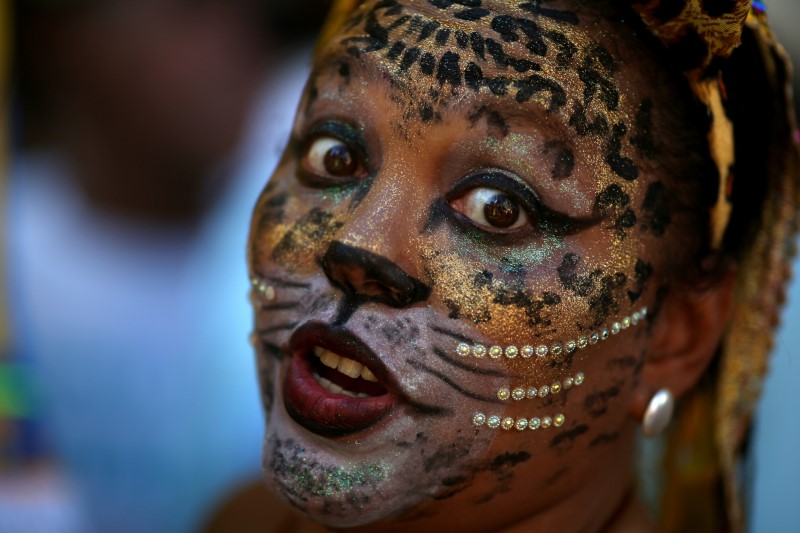RIO DE JANEIRO (Reuters) - Carnival (LON:CCL) festivities kicked off in Brazil on Friday, with officials in Rio de Janeiro, site of the country's best-known revelry, handing the key of the city over to "King Momo," a figurehead who traditionally presides over the partying.
Despite an ongoing recession and police strikes that raised security concerns in recent weeks, thousands of locals and tourists swarmed across Rio for the start of the five-day festival, which the city expects will draw more than 1 million visitors and generate about $1 billion for the local economy.
The celebration, known for block parties and the big-budget spectacle of parades at Rio's official Carnival venue, this year plays out as Brazil seeks to emerge from a two-year recession, its worst on record, and political volatility that last year led to a presidential impeachment.
A limited police strike in Rio, and a far bigger stoppage by police in the neighboring state of Espirito Santo, earlier this month prompted fears of a crime surge during Carnival. The strike in Espirito Santo, which lasted a week, led to a spike in murders, thefts and assaults.
But policing in Rio by this week had returned to normal and pre-Carnival street parties have been celebrated without major disruptions. With beer and cocktails flowing freely, officials have deployed outdoor urinals across the city and some offices and stores, wary of vandals, have boarded up windows and doors.
The festival, whose roots lie in a tradition of carnal indulgence before the austere Catholic season of Lent, officially ends next Wednesday.

Major carnival parades and other festivities will also take place in other cities, including São Paulo, Brazil's biggest metropolis, and Salvador, a city in the northeast where processions of giant floats serve as stages for pop stars and other performers.